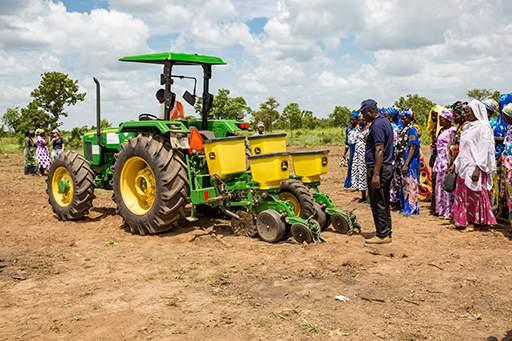Agriculture is the backbone of many African economies, providing employment, food, and income for millions of people. However, the sector faces numerous challenges, including low productivity, limited access to markets, and inadequate infrastructure. To overcome these challenges and promote agricultural development, education and training play a crucial role. In this article, we will explore the significance of education and training in enhancing agricultural productivity, improving livelihoods, and driving economic growth in Africa.
The Current State of Agricultural Education and Training in Africa
Agricultural education and training in Africa face several challenges, including inadequate infrastructure, insufficient funding, and a lack of qualified instructors. Many agricultural institutions in Africa are under-equipped, and the curriculum often fails to address the needs of the industry. Additionally, there is a shortage of skilled agricultural professionals, particularly in areas such as agricultural extension, research, and innovation.
The Importance of Education and Training in Agricultural Development
Education and training are essential for promoting agricultural development in Africa. By equipping farmers, agricultural professionals, and entrepreneurs with the necessary skills and knowledge, they can improve productivity, increase income, and enhance livelihoods. Some of the key benefits of education and training in agricultural development include:
- Improved Productivity: Education and training enable farmers to adopt modern farming practices, use improved technologies, and manage resources more efficiently, leading to increased productivity and yields.
- Enhanced Entrepreneurship: Training programs can equip entrepreneurs with the skills and knowledge needed to start and manage successful agricultural businesses, creating jobs and stimulating economic growth.
- Increased Competitiveness: Education and training can help African farmers and agricultural businesses compete in the global market, by improving quality, reducing costs, and increasing efficiency.
- Better Decision-Making: Education and training enable farmers and agricultural professionals to make informed decisions, based on data, research, and best practices, leading to more effective farm management and business planning.
- Innovation and Adaptation: Education and training can foster innovation and adaptation in agriculture, enabling farmers and agricultural businesses to respond to changing market conditions, climate change, and other challenges.
Types of Education and Training Programs
To promote agricultural development in Africa, various types of education and training programs are needed, including:
- Formal Education: Degree programs in agriculture, agribusiness, and related fields can equip students with the theoretical knowledge and practical skills needed to succeed in the industry.
- Vocational Training: Short-term training programs can provide farmers and agricultural workers with specific skills, such as crop management, animal husbandry, and farm mechanization.
- Extension Services: Agricultural extension services can provide farmers with advisory services, training, and support, enabling them to adopt new technologies and best practices.
- Informal Training: Informal training programs, such as farmer-to-farmer training, can provide farmers with practical skills and knowledge, often in a more accessible and cost-effective manner.
- Online and Digital Training: Online and digital training programs can reach a wider audience, providing farmers and agricultural professionals with access to knowledge, skills, and best practices, regardless of their location.
Best Practices for Agricultural Education and Training
To ensure the effectiveness of agricultural education and training programs in Africa, several best practices should be considered:
- Practical Orientation: Programs should focus on practical skills and knowledge, rather than just theoretical concepts.
- Industry Linkages: Programs should have strong linkages with the agricultural industry, ensuring that graduates have the skills and knowledge needed by employers.
- Partnerships and Collaboration: Programs should collaborate with other institutions, organizations, and stakeholders, to leverage resources, expertise, and funding.
- Flexibility and Adaptability: Programs should be flexible and adaptable, responding to changing market conditions, industry needs, and technological advancements.
- Monitoring and Evaluation: Programs should have robust monitoring and evaluation systems, enabling them to assess impact, identify areas for improvement, and make data-driven decisions.
Conclusion
Education and training are critical components of agricultural development in Africa. By equipping farmers, agricultural professionals, and entrepreneurs with the necessary skills and knowledge, they can improve productivity, increase income, and enhance livelihoods. To promote agricultural development, African governments, international organizations, and other stakeholders should invest in education and training programs, ensuring that they are practical, industry-focused, and responsive to the needs of the sector. By doing so, Africa can unlock its agricultural potential, drive economic growth, and improve food security for millions of people

